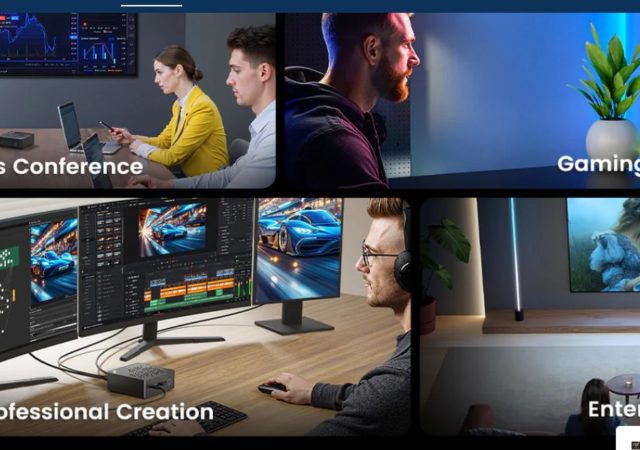Developing twenty-first century
competencies takes more than just hardware – building teacher capacity is a
must: THF Policy Forum
competencies takes more than just hardware – building teacher capacity is a
must: THF Policy Forum
Two-day policy forum on educational ICT
also discussed need for quality partnerships guided by strong vision from
countries for successful integration of technology into education in Southeast
Asia
also discussed need for quality partnerships guided by strong vision from
countries for successful integration of technology into education in Southeast
Asia
 |
| Panellists and speakers from THF Policy Forum Day 2 (8 Nov) |
Singapore, 08 November 2016 – Developing sustainable and scalable national
programmes integrating ICT into education means more than just having more
computers in classrooms. It must be driven by a strong vision from governments
with the support of key sectors and industry partners and the underlying
understanding that technology is not innovation in itself but rather a tool
that can facilitate innovative student learning. This was the overall argument
educational ICT experts emphasised at The HEAD Foundation (THF) Policy Forum: ICT in Asian Education on 7-8 November.
programmes integrating ICT into education means more than just having more
computers in classrooms. It must be driven by a strong vision from governments
with the support of key sectors and industry partners and the underlying
understanding that technology is not innovation in itself but rather a tool
that can facilitate innovative student learning. This was the overall argument
educational ICT experts emphasised at The HEAD Foundation (THF) Policy Forum: ICT in Asian Education on 7-8 November.
Key representatives from UNESCO Bangkok, Southeast Asian Minister of
Education Organization (SEAMEO), Microsoft and other notable academics and
non-academics in the field from countries like Singapore, Malaysia, Indonesia,
Vietnam and the Philippines gathered for the two-day forum to take stock, and
to identify solutions and projects addressing challenges and opportunities for
ICT in education.
Education Organization (SEAMEO), Microsoft and other notable academics and
non-academics in the field from countries like Singapore, Malaysia, Indonesia,
Vietnam and the Philippines gathered for the two-day forum to take stock, and
to identify solutions and projects addressing challenges and opportunities for
ICT in education.
With 137 million jobs in Southeast Asia at risk of being lost to
automation in twenty years, the education sector must consider how they can
help students develop twenty-first century competencies and be future-ready. According
to the panel speakers, a crucial component of holistically developing educational
ICT programmes is training and empowering teachers to not only use technology
but to think outside the box in how they can use such tools to improve the
quality of learning.
automation in twenty years, the education sector must consider how they can
help students develop twenty-first century competencies and be future-ready. According
to the panel speakers, a crucial component of holistically developing educational
ICT programmes is training and empowering teachers to not only use technology
but to think outside the box in how they can use such tools to improve the
quality of learning.
Singapore’s TPACK initiative for example is focused on quality learning
and teaching through the productive use of ICT. The programme enables teachers
to design learning experiences and environments with the goal of developing
students into future-ready and responsible digital learners. Malaysia’s video-based
BLOSSOMS project also encourages teachers to develop content and activities
with the support of videos that can be made easily available to other schools
through a website.
and teaching through the productive use of ICT. The programme enables teachers
to design learning experiences and environments with the goal of developing
students into future-ready and responsible digital learners. Malaysia’s video-based
BLOSSOMS project also encourages teachers to develop content and activities
with the support of videos that can be made easily available to other schools
through a website.
A closer look at specific national ICT implementation experiences of
different countries and the different unique challenges they faced illustrated
where the countries are in terms of integrating ICT in education. Vietnam for
example has invested a lot on hardware but human resource training in the
country is still considered weak in quantity and quality. Indonesia has also
implemented a number of initiatives such as the One School One Computer
Laboratory (OSOL) and has drawn up an ICT blue print but still faces the
challenge of a lack in content given the many languages in the country. Through
sharing these unique experiences and ideas panellists aim to explore ways to
sustain and scale up initiatives that work for their countries.
different countries and the different unique challenges they faced illustrated
where the countries are in terms of integrating ICT in education. Vietnam for
example has invested a lot on hardware but human resource training in the
country is still considered weak in quantity and quality. Indonesia has also
implemented a number of initiatives such as the One School One Computer
Laboratory (OSOL) and has drawn up an ICT blue print but still faces the
challenge of a lack in content given the many languages in the country. Through
sharing these unique experiences and ideas panellists aim to explore ways to
sustain and scale up initiatives that work for their countries.
“Moving forward, I hope we can improve the sharing and collaboration
among ASEAN countries not just in the ministerial level but at the grassroots
as well,” said Professor Lim Cher Peng, Professor of Curriculum and Innovations
at The Education University of Hong Kong and key note speaker at the forum. “We
can further look into exploring how governments, international organisations
and donor communities could support the scaling up of ICT in education
prototypes.”
among ASEAN countries not just in the ministerial level but at the grassroots
as well,” said Professor Lim Cher Peng, Professor of Curriculum and Innovations
at The Education University of Hong Kong and key note speaker at the forum. “We
can further look into exploring how governments, international organisations
and donor communities could support the scaling up of ICT in education
prototypes.”
“General consensus is that while enrolment has gone
up, the quality of student learning leaves much to be desired,” said Professor
S. Gopinathan, Academic Director at THF. “This forum drawing together experts
and practitioners from the region aims to examine the potential of ICT to reach
marginalised populations and to improve learning outcomes for all in
education.”
up, the quality of student learning leaves much to be desired,” said Professor
S. Gopinathan, Academic Director at THF. “This forum drawing together experts
and practitioners from the region aims to examine the potential of ICT to reach
marginalised populations and to improve learning outcomes for all in
education.”
For the LATEST tech updates,
FOLLOW us on our Twitter
LIKE us on our FaceBook
SUBSCRIBE to us on our YouTube Channel!





